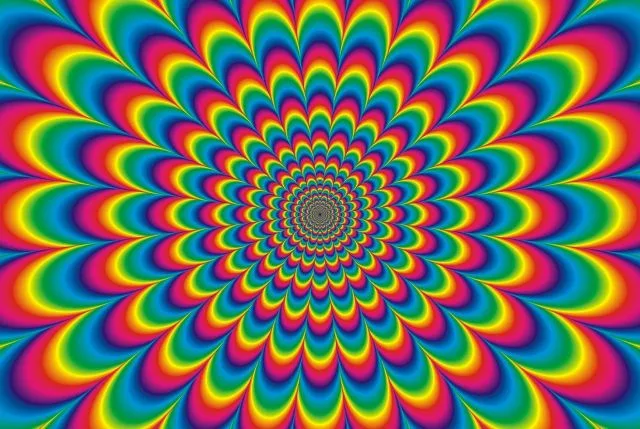Poor mental health is a growing global crisis, and over the past few years, Australia has proven its capacity as a global innovator in the treatment of mental illness. Last year, it became the first country in the world to officially recognize and legalize the use of psychedelics as medicine.
This past week saw the nation hit another milestone as two patients in Melbourne received treatment with psychedelic-assisted therapy. This event marked the first time patients have received these treatments outside of research in a legal, regulated clinical setting with scheduled psychedelic medicines in over 50 years.
First Psychedelic Medical Dosing in 50 Years Takes Place in Australia
Dosing was part of the Therapeutic Goods Administration’s (TGA) Authorised Prescriber (AP) program in Melbourne, Australia. It features medicines and training supplied through Mind Medicine Australia, a leading Australian not-for-profit organization that’s focused on developing the use of psychedelics as medicine.
“It is so gratifying to see patients who are suffering immensely being able to be treated with these transformational therapies for the first time in over 50 years.” – Tania do Jong AM, Mind Medicine Australia Executive Director
The psychiatrists leading the treatment were Dr. Eli Kotler and Dr. Ted Cassidy, both of whom graduated from the first cohort of MMA’s Certificate in Psychedelic-Assisted Therapies (CPAT) and hold Authorised Prescriber permits. Per the Australian government, an Authorised Prescriber is allowed to “prescribe medicines, medical devices or biologicals that are not included in the Australian Register of Therapeutic Goods to a class of patients with a particular medical condition.”
Benefits of Psychedelics for Mental Health
Whilst the availability of the treatment is still highly limited, the advancements that occurred this past week once again display the significant role that psychedelic-assisted therapies can play in addressing the mental health crisis.
In fact, before Australia’s groundbreaking rulings, many studies have highlighted the benefits that psychedelics can have on mental health;
- Psilocybin: An active compound found in magic mushrooms, research found a strong association between psilocybin treatment and a reduction in depressive symptoms and an inability to do everyday things, without serious adverse effects.
- Ketamine: You may consider it to be a party drug, but there’s more to ketamine than that. According to one study published in the New England Journal of Medicine, among 403 patients with major depressive disorder, 55% of those who received ketamine and 41% of those who received electroconvulsive therapy (ECT) experienced an almost 50% improvement in their self-reported depressive symptoms. They also experienced improvements in their self-reported quality of life, with both effects lasting throughout the study’s six-month monitoring period.
- MDMA: More commonly known as ecstasy or molly, MDMA-assisted therapy helped reduce PTSD symptoms, as well as functional limitations, among participants with moderate to severe PTSD. and was generally well tolerated.
Is the Future of Mental Health Dosing?
“With the mental health epidemic progressively and tragically increasing, we’re excited to see that people suffering from treatment-resistant depression or PTSD should be able to get access to a new treatment option that may help them recover. This marks the beginning of a major shift in our mental healthcare system.” – Peter Hunt AM, Mind Medicine Australia Executive Director Chair
This past week has shown the realities of a health system that can incorporate psychedelic-assisted therapies as a treatment option for people who have endured long-term suffering. Having said that, those looking to seek psychedelic-assisted therapies for mental health relief should only do so with the help of a trained professional.
Longevity Live Disclaimer: This article does not endorse the use of any psychedelic for recreational use.
References
Anand A, Mathew SJ, Sanacora G, Murrough JW, et al. (2023). Ketamine versus ECT for Nonpsychotic Treatment-Resistant Major Depression. N Engl J Med. 2023 Jun 22;388(25):2315-2325. doi: 10.1056/NEJMoa2302399. PMID: 37224232.
Mitchell, J.M., Ot’alora G., M., van der Kolk, B. et al. (2023). MDMA-assisted therapy for moderate to severe PTSD: a randomized, placebo-controlled phase 3 trial. Nat Med 29, 2473–2480. https://doi.org/10.1038/s41591-023-02565-4
Raison CL, Sanacora G, Woolley J, Heinzerling K. (2023). Single-Dose Psilocybin Treatment for Major Depressive Disorder: A Randomized Clinical Trial. JAMA. 5;330(9):843-853. doi: 10.1001/jama.2023.14530. PMID: 37651119; PMCID: PMC10472268.



![women [longevity live]](https://longevitylive.com/wp-content/uploads/2020/01/photo-of-women-walking-down-the-street-1116984-100x100.jpg)










